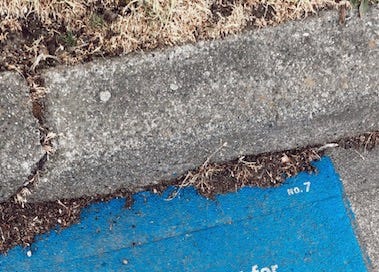Dear friend,
I hope you’re doing okay. Recently, a friend and I exchanged messages about how we wish people would stop saying things like in these difficult times because it feels like the times are always difficult, always dark, at least in the grand scheme. It rang true for me, but it also got me thinking about a quote by James Baldwin (so many of his words have been going around lately, no doubt because so many of us are at a loss for words of our own). The quote is essentially an admonishment of our tendency to despair. We are at a crossroads, as we have been so many times before, between hope and despair. And, as Baldwin simply said, we can’t tell the children that there’s no hope.
And so, in a small attempt to interrupt the loud drum of despair, I’m here to share a few things that help me find hope.
Assume that everyone is grieving. It’s very easy to see the shortcomings of others and ourselves, because we are human. The truth is, some part of me is almost always grieving, and I am not so special to think I am the only one. Does this mean that I assume everyone is constantly in deep grief? No, I hope not. I just know that suffering colors the edges and sometimes the middles of our lives and we could all use a little grace. Right now there are people in very deep grief, some that is new and some that has been borne into their very bodies, passed down through generations of pain and trauma. People whose entire history is rooted in persecution, who fear the destruction of their only home. There are people trying to hold more than one truth at once, despite their fear and anger and relative powerlessness. Sometimes, the grace I can give is to make a safe place for the expression of these griefs. Sometimes the only grace I can give is that of my silence and distance. And in so doing, I find grace for myself, too.
There are people doing very hard things offline that need your help. Last year I learned that there are organizations right here in my neighborhood who need volunteers to go and deliver meals or run errands for house-bound people, mostly senior citizens who are living isolated lives. The shifts are very short, and the tasks require very little effort, but they put me in contact with people who remind me that we are all just trying to get from here to there, everyday.
Find a spiritual life, something that invites you to be in awe and wonder. Something that helps you find the threads that run through all our lives. For some people, this is religion. It frames their understanding of the human condition and provides a set of rules, some clarity to the questions of how should a person be? what should a person do? Earlier this year I read The Wonder Paradox, in which historian and poet Jennifer Michael Hecht uses poetry as the springboard for this wonder and awe, a secular answer for those still searching for communion, for answers, for some comfort. It’s one of the best books I’ve read and one I return to often.
I recognize that in the face of such horrors these things seem futile, maybe even like an idealistic escape route from the real issues. But I can’t imagine anything more real than our humanity. As we’re doing our part to push for an end to the bombings and donating what we can to the organizations that are there on the ground - trying to keep human bodies from being torn apart and left in rubble - as we’re amplifying voices that are being silenced, I hope we find love and humanity in it all. I hope we will drag ourselves and each other out of this darkness. I hope that somehow, in all the righteous anger and trauma and fear we will close the chasm between us. I can’t see another way out of this nightmare but by insisting on each other’s humanity.
For the first time in my life I saw the truth as it is set into song by so many poets, proclaimed as the final wisdom by so many thinkers. The truth – that love is the ultimate and highest goal to which man can aspire. Then I grasped the meaning of the greatest secret that human poetry and human thought and belief have to impart: the salvation of man is through love and in love.
- Viktor Frankl, Man’s Search for Meaning
Take good care,
Lidiya




Beautiful, as always. Thank you for these reminders to feel and be, feel and be—both as we are or as we hope for. x
Yes to all this. xo